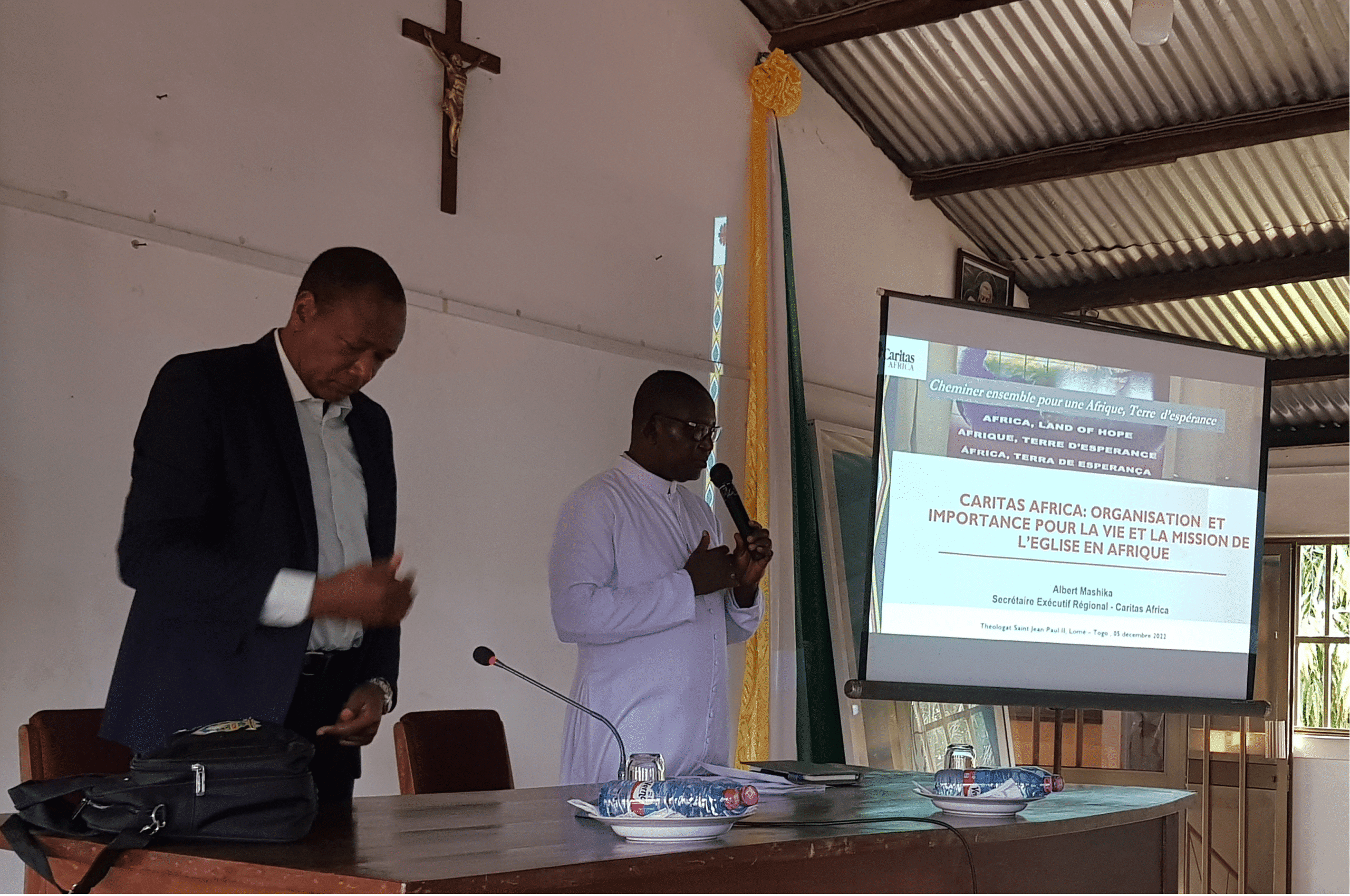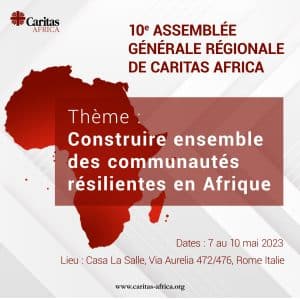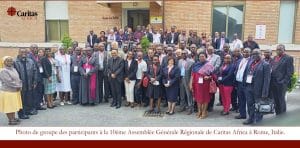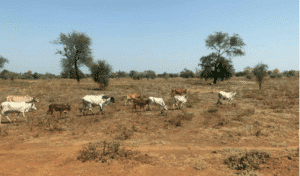The Regional Executive Secretary of Caritas Africa, Mr. Albert MASHIKA gave a conference on December 5, 2022 before more than 260 major seminarians (in Theology) and Priests formators of the Grand Séminaire Interdiocésain Saint Jean Paul II of Lomé in Togo on the theme
Organization of Caritas Africa and its importance for the life and mission of the Church in Africa
The session was opened with a prayer said by the Rector of the Major Interdiocesan Seminary, Reverend Father Yadja Etienne INIBIDE. He then presented the context in which the conference is organized. In his speech, he explained that the conferences are part of the formation of the seminarians, and this one is the first of the year 2022.
Taking the floor, Mr. MASHIKA, at the beginning of his intervention, explained that this sharing aims to bring more clarity on the identity, mission and place of Caritas within the Church.

His intervention, which was much appreciated by the major seminarians as well as by their formators, can be summarized in the following lines.
As a reminder, the mission of the Church has a triple dimension (i) the proclamation of the Word of God, (ii) the celebration of the Sacred Mysteries and (iii) Diakonia. These 3 dimensions are inseparable and normally deserve the same attention.
It is clear, therefore, that Caritas is at the heart of the Church’s mission insofar as its mission is to serve, accompany and defend the poor. As such, Caritas is the Bishop’s privileged instrument for the service of charity. There is no Church without the service of charity and Caritas cannot exist outside the Church.
However, the service of charity must be organized to be ordered to the community (Deus Caritas Est n.20) and also requires competence, because the poor deserve the best service we can give them. And this should be the case at all the different levels (parish, diocesan, national, regional and continental) where we intervene.
Indeed, as an organization, Caritas is precisely an expression of the Church’s organized charity. Although Caritas does not have a monopoly on the service of charity, it is the institutionalization of such service in the Church (Pope Francis). Caritas therefore has a central role to play in animating and coordinating the service of charity under the authority of the Bishop who presides over charity in each particular church (Benedict XVI, Motu Proprio “Intima Ecclesiae Natura” 2012).
All this explains the commitments of Caritas Africa with the support of Caritas Internationalis and its various partners through the following 4 orientations aimed at :
- Promotion of the identity and mission of Caritas in order to ensure its appropriation by the hierarchy of the Church at different levels and the communities;
- Strengthening Caritas capacity based on the Caritas Internationalis Management Standards (CIMS) in order to have professional and resilient Caritas organizations that manage the resources at their disposal in a transparent manner and report regularly to the Bishops, communities, and partners;
- Emergency preparedness and response to reduce the impact of disasters on the lives of affected communities, to strengthen the resilience of these communities, … with a Regional Solidarity Fund (an instrument set up by the Bishops to enable the Regional Executive Secretariat to provide initial support, however modest, to Caritas facing a crisis situation) whose resources are insignificant in relation to the scale of the crises experienced in Africa; and
- Engagement in integral human development to meet the needs of communities in terms of food security, income-generating activities, health, peace and social cohesion…) and also through Advocacy to defend the voice of the voiceless and to make the voice of the Church heard on issues aimed at the common good (democratic governance and leadership attentive to the rights of the people, environmental protection and climate change, international cooperation and development) where decisions are made with the aim of contributing to the construction of a fraternal and just world.
However, collaboration with some Episcopal Conferences at certain levels and other Church structures, including religious congregations, is still timid if not non-existent, probably due to a lack of sufficient information about Caritas!
In conclusion, Mr. MASHIKA recalled that Caritas Africa faces three major challenges: (i) the ownership of Caritas by the Church hierarchy and its rootedness in the communities on the one hand, and (ii) its sustainability/perpetuity (appropriate structures, quality leadership, availability of stable financial resources) on the other hand to reduce (iii) its fragility and dependence on the outside world.
By Atsu SENAME.




